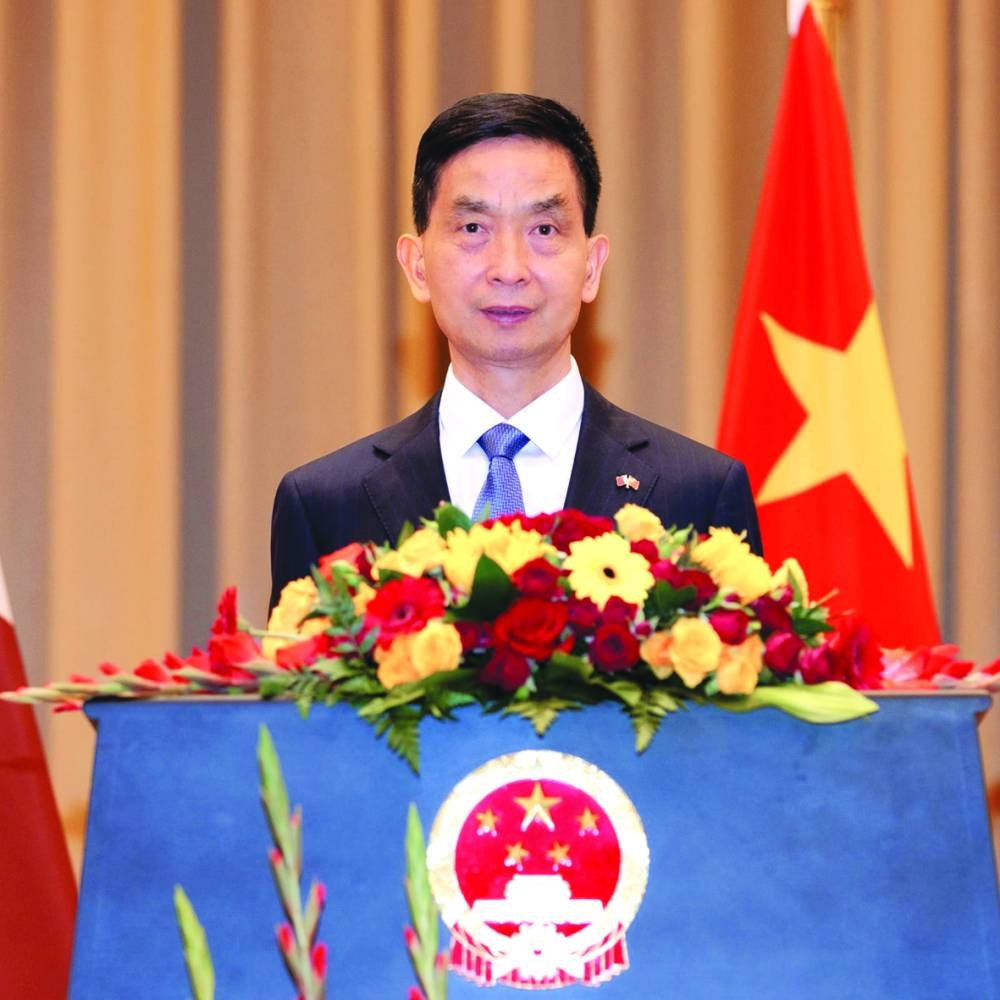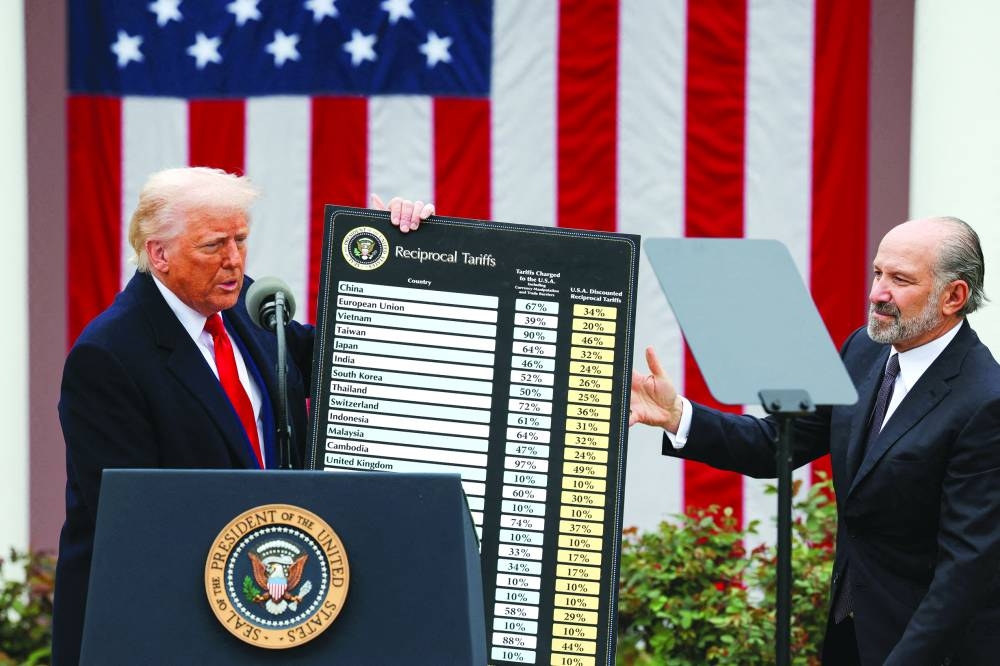The US has imposed additional tariffs on all its trading partners, including China, over the past weeks under the pretext of so-called “reciprocity”. By turning tariffs into a weapon of maximum pressure, the US seeks to force other countries to yield to US economic hegemony and protect its “America First” agenda at the expense of others’ legitimate interests. This move has sparked widespread dissatisfaction both around the world and within the US itself. Such reckless tariff practices will only deepen the US’s isolation and economic decline. In contrast, the Global South is responding to these bullying tactics with unity and co-operation, working together to accelerate their path to growth and self-empowerment.
The US’s arbitrary tariff hikes are rooted in a fundamental misjudgment and are bound to fail. Nobel laureate economist Paul Krugman, Columbia University professor Jeffrey Sachs, and other leading experts have recently delivered sharp critiques of US tariff policies. They argue that the root cause of the US trade deficit lies in excessive budget deficits and chronic fiscal imbalances — not in so-called “unfair trade practices” by other countries. The idea of “reciprocal tariffs” lacks rigorous analysis, is based on flawed logic, and holds no real economic rationale.
Efforts to revive American manufacturing through tariff hikes are nothing more than wishful thinking. The US lacks the necessary conditions to support reindustrialisation: its domestic economic ecosystem and supply chains are underdeveloped, factory permits are slow to process, energy supplies are insufficient, and both land and labour costs are prohibitively high.
These “reciprocal tariffs” are dragging down not only the US economy but also the global economy. JPMorgan Chase recently raised the probability of a US recession to 60%. According to former US Treasury Secretary Lawrence Summers, the tariff policy could result in a staggering $30tn loss for the US economy or $300,000 per American household of four. In an open letter, World Trade Organisation (WTO) Director-General Ngozi Okonjo-Iweala warned that the US tariff hikes could lead to a contraction of 1% in global merchandise trade volumes, nearly 4 percentage points lower than earlier projections.
China, meanwhile, has taken legitimate countermeasures and now holds the strategic initiative in the tariff standoff. In response to the US-initiated tariff war, China promptly implemented countermeasures, not only to safeguard its own legitimate rights and interests but also to uphold international rules and order. These measures are entirely lawful and justified. Research institutions and media outlets such as the RAND Corp, Bloomberg, and The Wall Street Journal have acknowledged that, given the scale of US tariffs on China, Beijing has every reason to respond in kind.
China is fully prepared to withstand the US’s maximum pressure. According to Adam Posen, President of the Peterson Institute for International Economics, China holds the upper hand in the tariff battle. China’s high domestic savings rate and broad access to alternative overseas markets mean it can absorb the impact by shifting exports toward domestic consumption or by expanding its footprint in other international markets. With a highly stable political system, clear policy planning, strong execution capabilities, and resilient institutions, China’s ability to withstand economic shocks far surpasses that of the US, and its role and influence in the global economy will only grow stronger.
The Global South, united in the face of external shocks, is advancing through solidarity. During a recent meeting with Chinese President Xi Jinping, Malaysian Prime Minister Anwar Ibrahim expressed that facing the rise of unilateralism, Malaysia will work closer with China to jointly tackle risks and challenges, and Asean will seek greater strength and maintain economic growth through unity and co-operation, instead of conceding to any unilaterally imposed tariffs. Renowned Brazilian journalist Attuch also urged Brazil to seize the opportunity to align its development strategies with China’s, promoting shared development and contributing to a more balanced globalisation.
Today, the Global South accounts for over 40% of global economic output and contributes approximately 80% of global economic growth, playing an increasingly vital role in international affairs. In the face of rising threats along the path of its rise, the Global South is raising a collective voice against unilateralism, protectionism, and trade bullying. Together, they are working to defend the common interests of development and progress.
China and Qatar are strategic partners with our mutually beneficial cooperation reaching a historic high. The bilateral trade volume increased from $10.6bn in 2014 to $24.22bn in 2024, marking a growth of over 128%. Since 2020, China has remained Qatar’s largest trading partner and top export destination for five consecutive years.
A new bilateral co-operation framework featuring strong complementarity and mutual benefit has taken shape, with energy collaboration as the main pillar, infrastructure development as a key focus, and financial investment and high-tech innovation as new growth drivers, delivering tangible benefits to the people of both countries.
The fruitful achievements of our cooperation benefit from the rule-based multilateral trading system with WTO as its core. China and Qatar are beneficiaries and firm supporters of globalisation and free trade, and have jointly made important contributions to the global economic growth.
Openness and co-operation are the unstoppable currents of history. The world will not and should not regress into fragmentation and isolation. China stands ready to enhance communication and co-operation with all countries to jointly uphold fairness and justice in the international system, firmly oppose unilateral bullying, safeguard international rules and order, stabilise global supply and industrial chains, and protect the shared interests of the international community.

Cao Xiaolin

SPOTLIGHT: US President Donald Trump holds a chart next to US Secretary of Commerce Howard Lutnick as Trump delivers remarks on tariffs in the Rose Garden at the White House in Washington, DC. (Reuters file photo)
